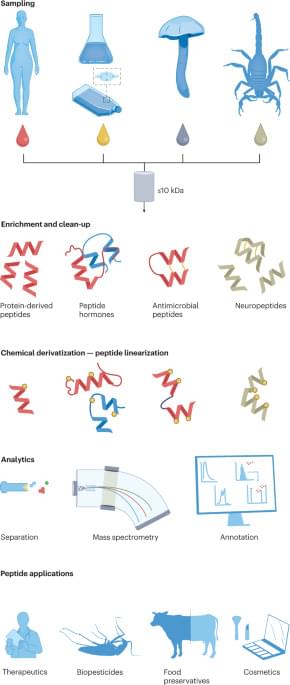Describes and demonstrates the MR technique of Diffusion Tensor Imaging and reviews some of the basic mathematics of Tensors including matrix multiplication, eigenvalues and eigenvectors.
Get the latest international news and world events from around the world.

Blackrock Neurotech Reveals Neuralace™: 10,000+ Channel Next-Gen BCI
Blackrock’s long-tested NeuroPort® Array, widely considered the gold standard of high-channel neural interfacing, has been used in human BCIs since 2004 and powered many of the field’s most significant milestones. In clinical trials, patients using Blackrock’s BCI have regained tactile function, movement of their own limbs and prosthetics, and the ability to control digital devices, despite diagnoses of paralysis and other neurological disorders.
While Blackrock’s BCI enables patients to execute sophisticated functions without reliance on assistive technologies, next-generation BCIs for areas such as vision and memory restoration, performance prediction, and treatment of mental health disorders like depression will need to interface with more neurons.
Neuralace is designed to capitalize on this need; with 10,000+ channels and the entire scalable system integrated on an extremely flexible lace-structured chip, it could capture data that is orders of magnitude greater than existing electrodes, allowing for an exponential increase in capability and intuitiveness.

Peptidomics Reviews Methods Primers
Peptidomics employs techniques of genomics, modern proteomics, state-of-the-art analytical chemistry and computational biology. In this Primer, Hellinger et al. describe the techniques and workflows required for peptide discovery and characterization and give an overview of biological and clinical applications of peptidomics.
When Brains Dream: Exploring the Science and Mystery of Sleep
A book talk by:
Robert Stickgold, PhD
Professor of Psychiatry.
Harvard Medical School.
Director, center for sleep and cognition.
Beth Israel Deaconess Medical Center
Goebel Rainer — Resolving activity in cortical columns and cortical layers in the human brain (…)
Resolving activity in cortical columns and cortical layers in the human brain with ultra-high field fMRI — new insights for biological models of cognitive functions.
Speaker: Rainer Goebel, Maastricht University, Netherlands.
HBP School — The Human Brain Atlas: Neuroscientific basis, tools and applications.
3–7 September 2018
Düsseldorf/Jülich, Germany.
Maastricht, Netherlands.
Follow us:
Facebook: @hbpeducation.
Twitter: @hbp_education.
Instagram: @hbp_education or visit:
www.humanbrainproject.eu/education.
Video recorded by Bergrath & Siebert.



Microsoft Designer Is The Very Worst Example Of AI
Microsoft is determined to thrust “AI” into all of its products at the moment and Microsoft Designer is no exception. This supposedly AI-driven service — currently in preview — is meant to create stunning social media posts, flyers etc. from your written prompts alone. Sadly, it’s about as intelligent as a Big Mac.
This is sort-of fine for a two-for one drinks offer:
This is, at best, conceptual:
Microsoft Designer has a very similar interface and set of features as Adobe Express, which I’ve used regularly to create social media posts, posters and other materials other the past couple of years.

Cormify leverages machine learning and 3D printing to make the best mouse for you
A lightweight, customized mouse delivering maximum comfort and peak performance that fits snugly into your palm and your palm alone.
In this day and age, where we spend hours hunched over a computer, there is a case for everything being ergonomic.
Into this niche steps Formify, a team based out of Toronto with the belief that individualized design should be accessible to everyone.

Berkeley researcher deploys robots and AI to increase pace of research by 100 times
No human intervention is required.
A research team led by Yan Zeng, a scientist at the Department of Energy’s Lawrence Berkeley National Laboratory (Berkeley Lab), has built a new material research laboratory where robots do the work and artificial intelligence (AI) can make routine decisions. This allows work to be conducted around the clock, thereby accelerating the pace of research.
Research facilities and instrumentation have come a long way over the years, but the nature of research remains the same. At the center of each experiment is a human doing the measurements, making sense of data, and deciding the next steps to be taken. At the A-Lab set up at Berkeley, the researchers led by Zeng want to break the current pace of research by using robotics and AI.